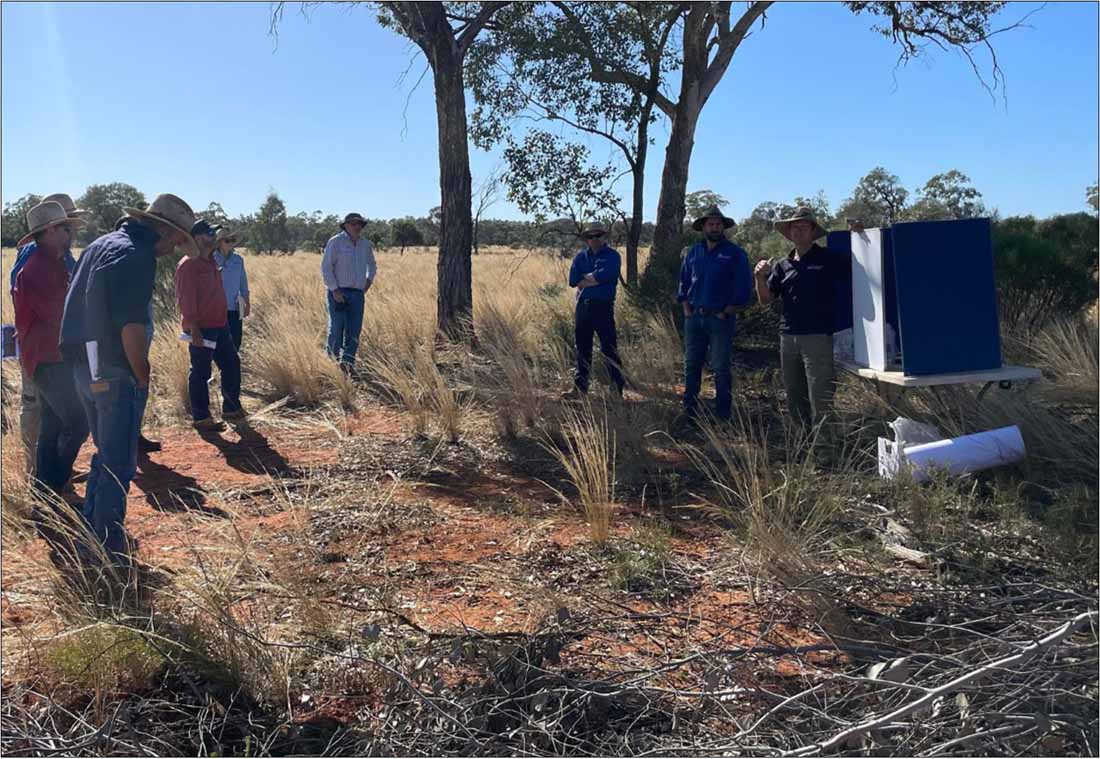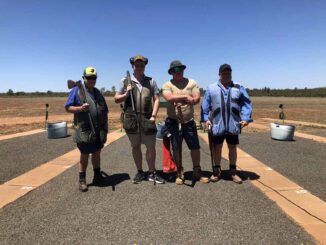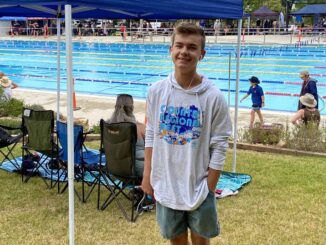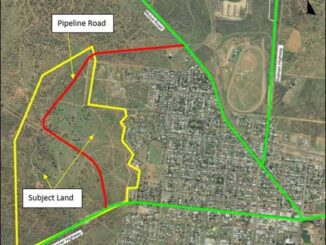
NSW Department of Primary Industries and Western Local Land Services are working with Cobar farmers to help them rehydrate and revegetate their landscapes using deep ripping and ponding practices.
Scott Preisig and Belinda Blake at Merrylands north west of Cobar are among the group of farmers who are taking part in the project.
Scott and Belinda trialed several landscape modifications to rehabilitate and rejuvenate their property during the 2018/19 drought.
Despite tough climatic conditions they successfully brought productivity back to the areas. They have since partnered with DPI to extend the work.
The pair hosted a farm tour last week which gave other interested graziers the chance to talk to experts and see projects first-hand.
During the tour, Scott and Belinda spoke about the challenges they faced with their unproductive paddocks that were getting worse and about how having access to poor climatic records and data was not good for sound decision making.
Western Local Land Services Senior Land Services Officer, Rangeland Rehabilitation, Paul Theakston discussed rehabilitation methods that covered diversion banks, ripping and ponding. Other presenters during the farm tour included NSW DPI’s Pastures Research Officer, Sarah McDonald who talked about quantitatively assessing improvements (Landscape Function Analysis) and Michael Middleton from NSW DPI’s Digital Agriculture Team spoke about the advantages of on farm data and connectivity options.
The tour took in sites that had been ripped three years ago in 2019 and sown with multiple species including Burgundy Bean, Forage Sorghum, Buffel Grass, Silky Bluegrass, Curly Windmill Grass, Evans Wallaby Grass, Kangaroo Grass, Premier Digit Grass and others.
For comparison, they also visited a new ripping site that had been sown with a multi-species mix in April/May this year.
Farm tour participants also visited sites that had been ponded in 2022, and saw AgTech equipment that had been installed to monitor on-site weather and water infiltration.


